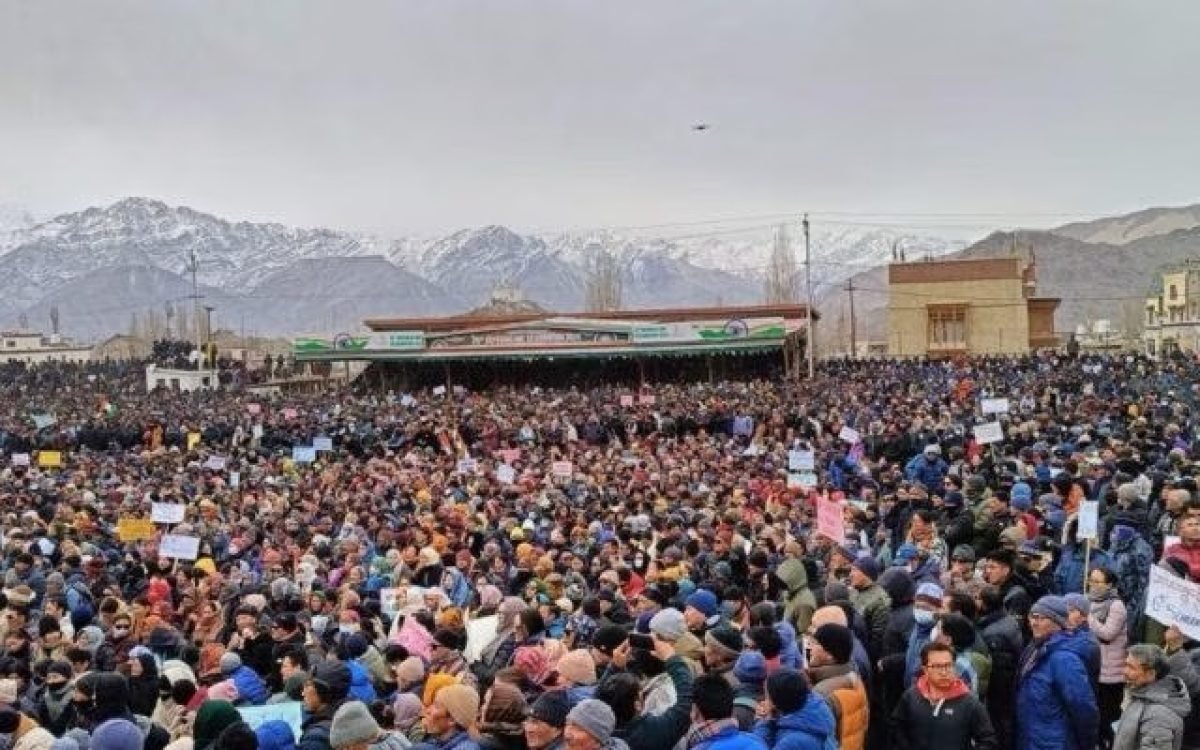On February 3rd, history witnessed a momentous gathering at the Polo Ground in Leh, where the voices of Ladakh’s eight tribes resonated in unison, echoing a resounding message of empowerment and autonomy. Led by the Apex Body representing Ladakh and bolstered by the support of the Kargil Democratic Alliance (KDA), this coalition of religious and student bodies stood united, demanding an end to external interference and a restoration of their rightful voice in governance.
Amidst the serene backdrop of Ladakh’s picturesque landscape, a peaceful yet powerful demonstration unfolded, fueled by a simmering discontent that could no longer be ignored. At its core lay a singular assertion: Ladakh refuses to be dictated to from the corridors of Delhi.
Central to the grievances voiced by Ladakh’s unified front is the rejection of the Lieutenant Governor-led bureaucratic rule imposed upon them. Formerly represented by four MLAs, MLCs, a speaker of the J&K Legislative Council, and an MP, Ladakh now finds its political representation drastically diminished, relegated to a single MP without portfolio and two Autonomous Hill Development Councils embroiled in bureaucratic ambiguity.
The demands articulated by the Ladakhi people are not mere pleas for recognition; they embody a collective yearning for dignity, agency, and self-determination:
- Full Statehood for Ladakh: A call to elevate Ladakh to the status it rightfully deserves, granting it the autonomy to shape its own destiny.
- Inclusion in the Sixth Schedule: An imperative step towards safeguarding Ladakh’s unique cultural identity and preserving its rich heritage.
- Establishment of a Public Service Commission in Ladakh: A crucial mechanism for ensuring secure employment opportunities for the region’s populace.
- Two MPs for Ladakh: A demand for adequate representation at the national level, amplifying Ladakh’s voice on the political stage.
The disparity between Ladakh’s modest population of roughly three lakh and the overwhelming bureaucratic machinery imposed upon it underscores the urgency of their plight. While the twin districts of Leh and Kargil thrived under the administration of just two deputy commissioners each, the Union Territory of Ladakh now finds itself inundated with layers of bureaucratic complexity.
Shockingly, despite over four years since its inception, the UT of Ladakh continues to grapple with fundamental issues such as gazetted recruitment rules, domicile clarity, and recognition of indigenous tribes. This stark reality juxtaposed against the presence of an industrial policy raises valid concerns regarding the preservation of Ladakh’s fragile ecology and cultural heritage.
As Ladakh stands at the precipice of transformation, the resounding call for empowerment reverberates across its rugged terrain, igniting a spark of hope for a future defined by autonomy, inclusivity, and prosperity. In their unwavering resolve, the people of Ladakh exemplify the timeless spirit of resilience and determination, forging ahead on a journey towards self-governance and dignified existence.









